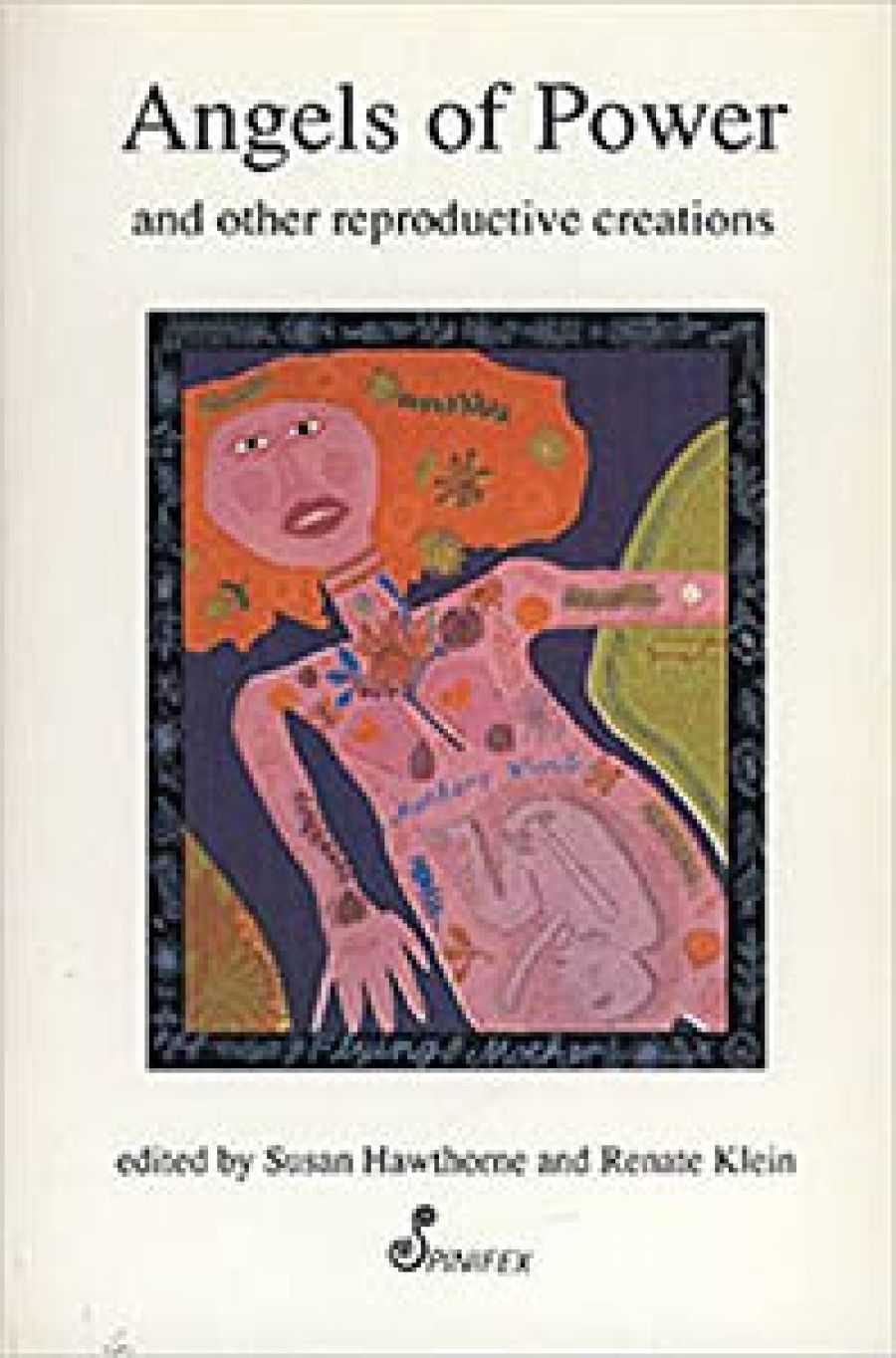
- Free Article: No
- Contents Category: Gender
- Review Article: Yes
- Article Title: Wit and humour in an imperfect world
- Online Only: No
- Custom Highlight Text:
In The Dialectic of Sex, published in 1970, the feminist Shulamith Firestone argued that the inequality between the sexes results from the different reproductive functions performed by women and men. In having to go through pregnancy, childbirth, and breast-feeding, women are dependent on men for support. The natural reproductive functions performed by females are not only enslaving women, they are also barbaric in themselves. ‘Pregnancy is barbaric’, Firestone argued, and women should be freed from the ‘tyranny of reproduction by every means possible’. Just as contraception had already been a liberating force for women, so would other new reproductive technologies. Firestone envisaged that ectogenesis – the growth and development of a foetus outside the womb – would be the answer for women, as long as ‘improper control’ was not exercised by men.
- Book 1 Title: Angels of Power and other Reproductive Creations
- Book 1 Biblio: Spinifex Press, 280 pp, $14.95 pb
In the twenty years that followed the publication of The Dialectic of Sex, many feminists began to think that there was a close link between new reproductive technologies and ‘improper control’. In vitro fertilisation, for example, was not only seen as a means for overcoming infertility but also as an instrument of male control over female reproductive processes, over women’s bodies, and over the creation of life itself. While infertile women, spurred on by the ‘pronatalist’ pressures of our society, would want to make use of various new reproductive technologies (often at great cost to themselves), they are not, the new critics assert, making a free and autonomous choice. Rather, they are driven by the ‘socially constructed’ belief that only motherhood can make them whole.
While these critics have done well to alert us to the fact that new reproductive technologies are not value neutral, simply to be used as instruments to their liberation, many of these feminist critiques are memorable not for the reasonableness of their arguments, but rather for the shrill and histrionic way in which they have been presented. There is talk of ‘egg farming’, of ‘reproductive brothels’, of ‘egg snatchers’, and of the ‘end of the female’. These critics have found one of their main outlets in the FINRRAGE movement (Feminist International Network of Resistance to Reproductive and Genetic Engineering).
Renate Klein, one of the editors of Angels of Power, is a well-known member of FINRRAGE. When asked to review her and Susan Hawthorne’s collection of ‘reproductive creations’, I was expecting just another tirade. The collection was, however, a very pleasant surprise. While the writers share very similar concerns with members of the FINRRAGE movement and other feminists, their imaginative and often light-hearted creative approach turned the heavy standard fare of feminist writings into a delightful and thoroughly enjoyable intellectual feast.
In plays, poems, stories, and drawings, the sixteen contributors to Angels of Power have, with great imagination, wit, and generally good humour, sketched various scenarios which, while critical of new reproductive technologies and the motives of those who control them, avoid the unrelieved negativity of standard critiques. Rather, they broaden the readers’ vision, make them think about possibilities and dangers that they would, in other contexts, dismiss as being decidedly ‘over the top’.
There are two plays, one ‘Angels of Power’, which gave the collection its title, by the now well-known Australian playwright Sandra Shotlander; and one, ‘Better People’, by the US playwright and peace activist Karen Maplede. ‘Angels of Power’ has three female heroines, all of them Members of Parliament. They represent three different types of women and stand for three different approaches to politics – Left, Right, and Independent/Green. In this ultimately optimistic play, Mary, Athena, and Diana Hunt (no, the names are no coincidence!) finally bridge the political gulf, and unite on the issues surrounding the control of new reproductive technologies.
Karen Malpede’s play – in my view the strongest contribution to the collection – raises profound questions about the ethical responsibility of scientists and the aims of their research. The play is also hilariously funny. When a new life-form escapes from the laboratory, there is much commotion amongst the scientists – until one of them comes up with the ‘obvious’ answer: ‘Let’s make up a bug that will eat it!’ Chorus from the other scientists: ‘Yes, yes. There’s work to be done. Deadlines to meet. Back to work. That’s best. Eat it! Of course! Work, yes, work. Work, what a relief!’ And, later Haila (female scientist): ‘I want my eggs frozen alongside all that sperm in the Nobel sperm bank. I want equality at last’.
Then there is a short story by Mary O’Brien, where Elly, the ‘last error’ (she has dark skin) wonders whether girls are no longer being born; and another short story, by Melissa Chan, where women are marrying wealthy men who are genetically predisposed to die when in their early forties. There is an entertaining ‘fairytale’ by Carmel Bird, and other stories and poems by Susan Hawthorne, Cait Featherstone, Atholee Scott, Maurilia Meehan, Rosaleen Love, as well as a beautiful ‘Yenga Tale’ by Barbara Needy, and ‘concrete poetry’ by Thalia.
The authors – from Australia, New Zealand, Canada, and the USA – are, I believe, much more likely to achieve what some heavy-handed academic feminists have frequently tried in vain: to convince the wider public that new reproductive technologies are not simply instruments for women’s liberation – but that they can, in an imperfect world, also be tools of oppression and enslavement – for all of us.


Comments powered by CComment